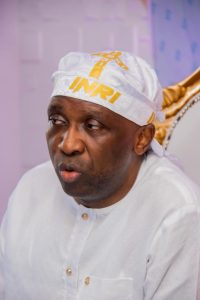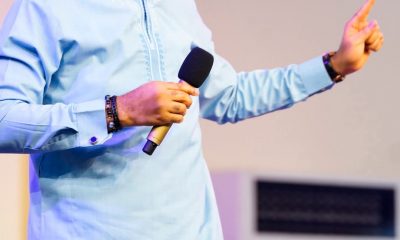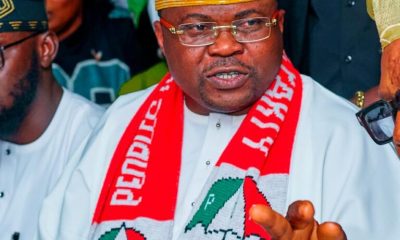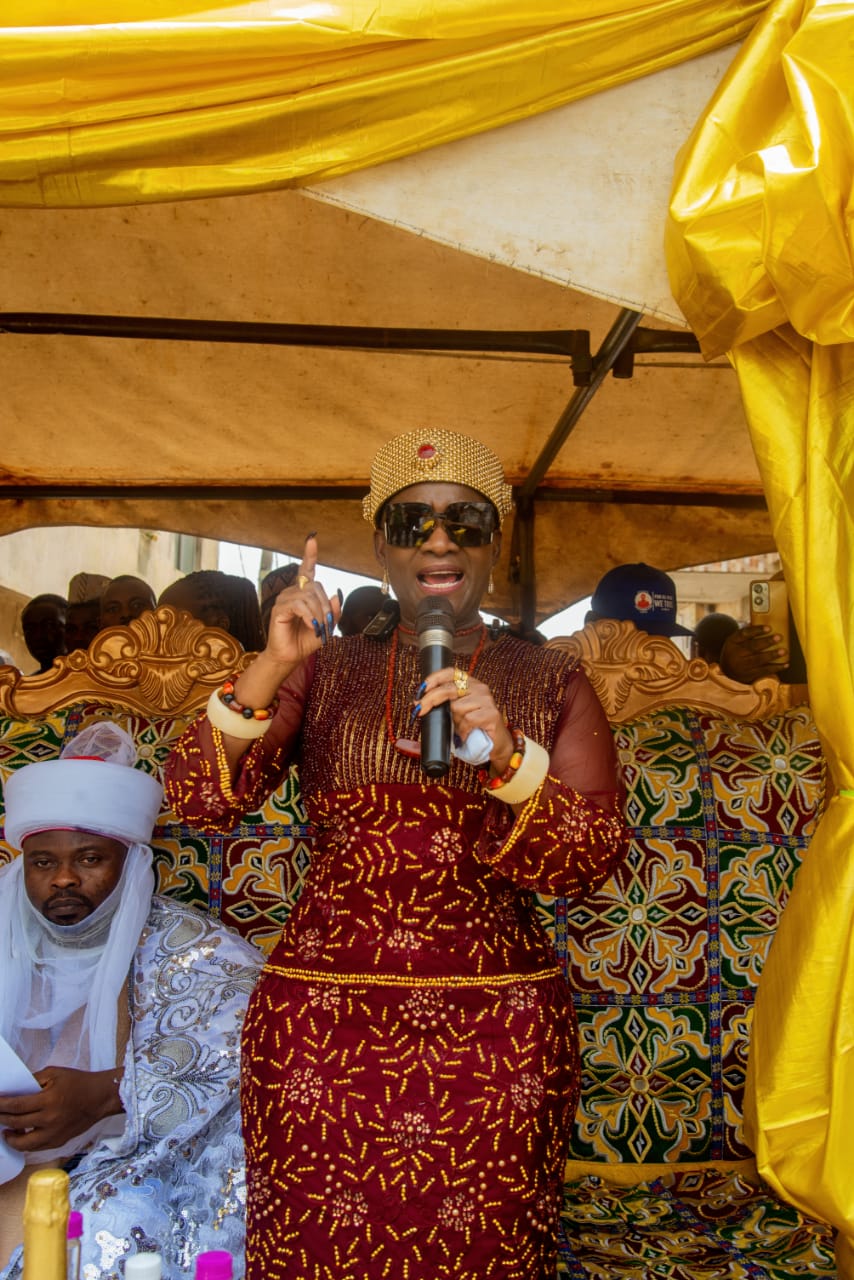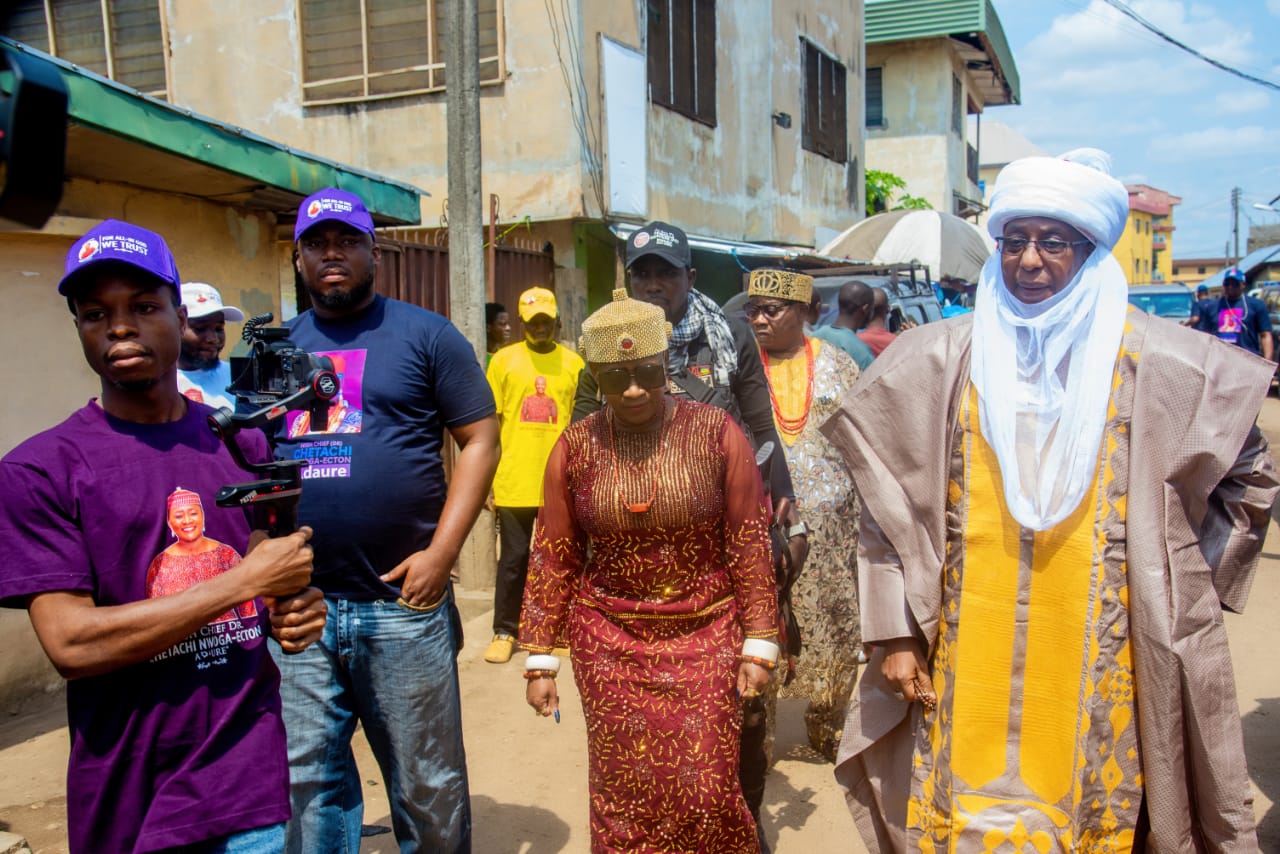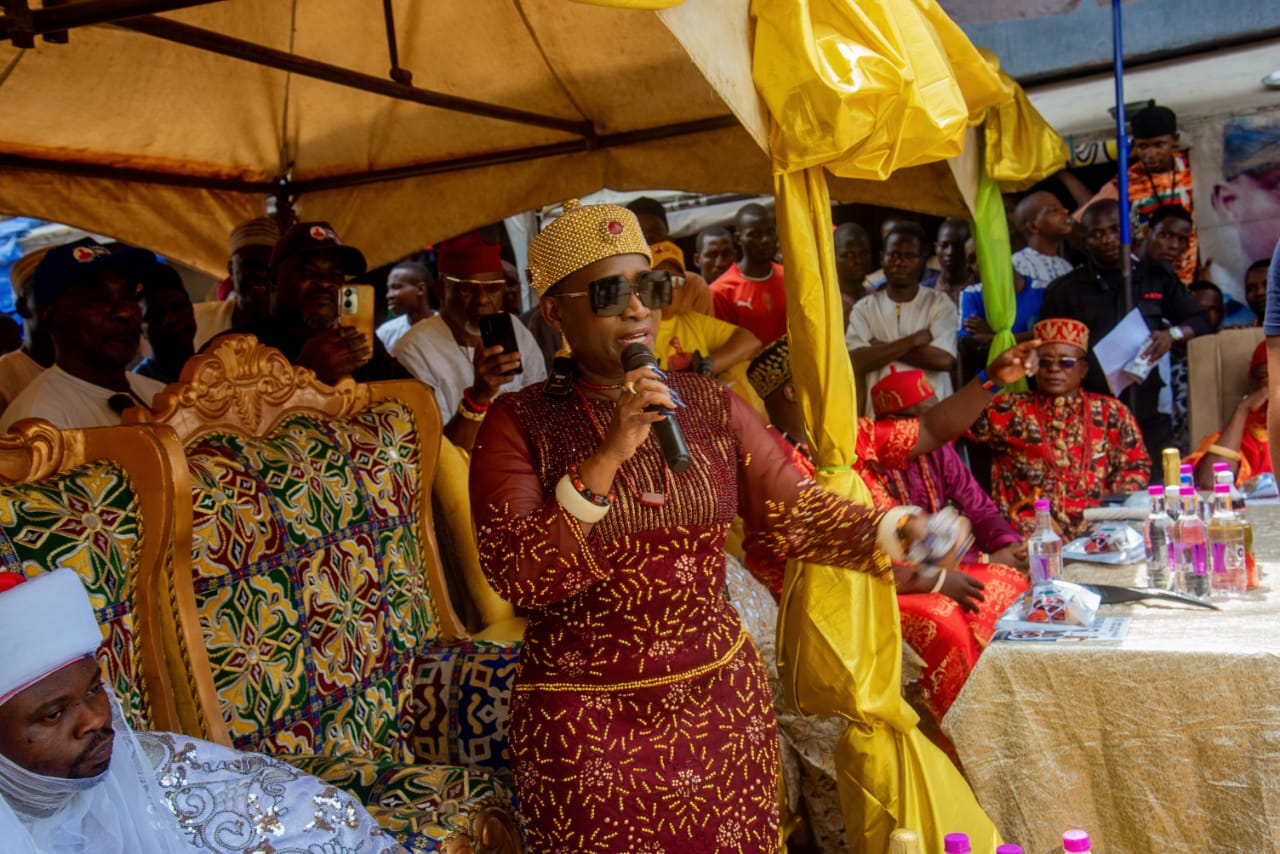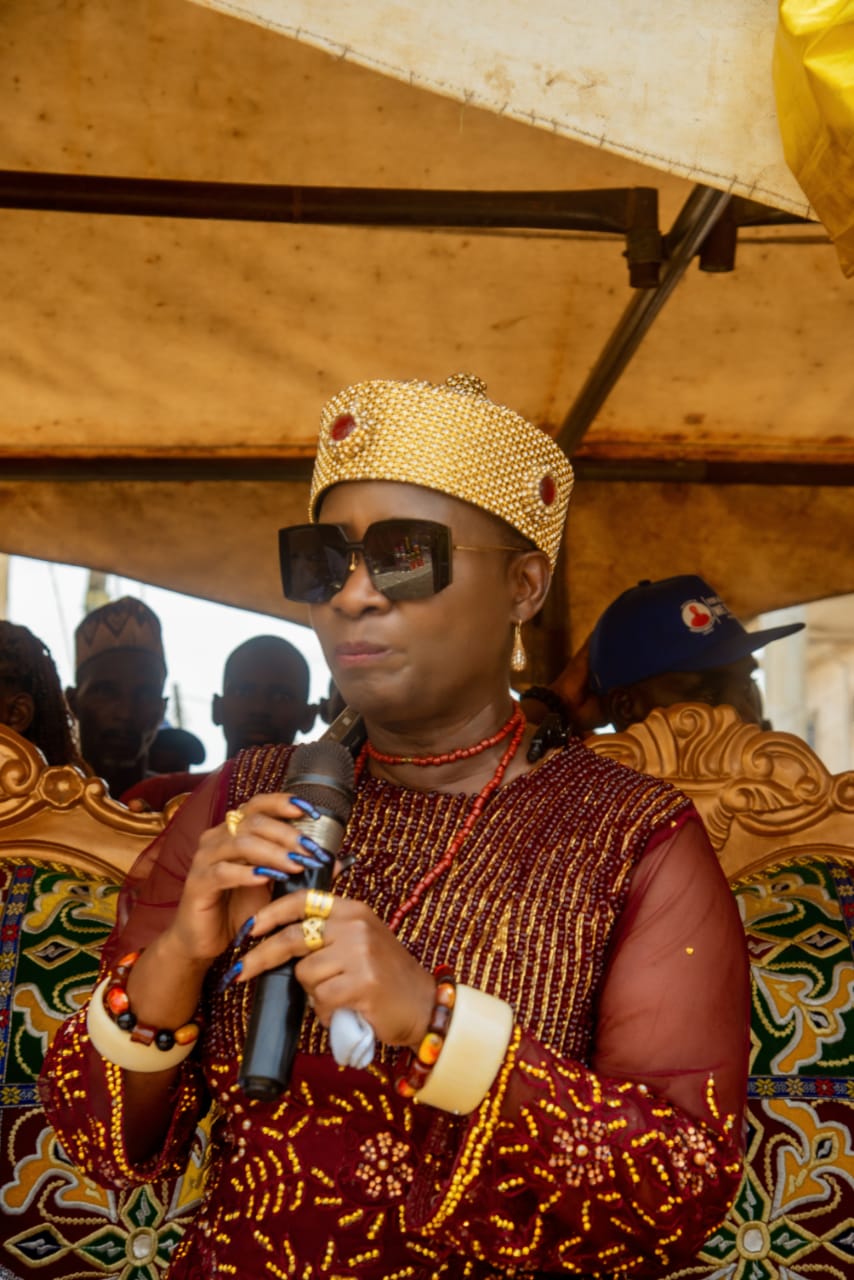society
Spiritual Solutions In Nigeria’s Battle Against Insecurity: The Role of Primate Elijah Ayodele* By Olomi Jelili, Lagos
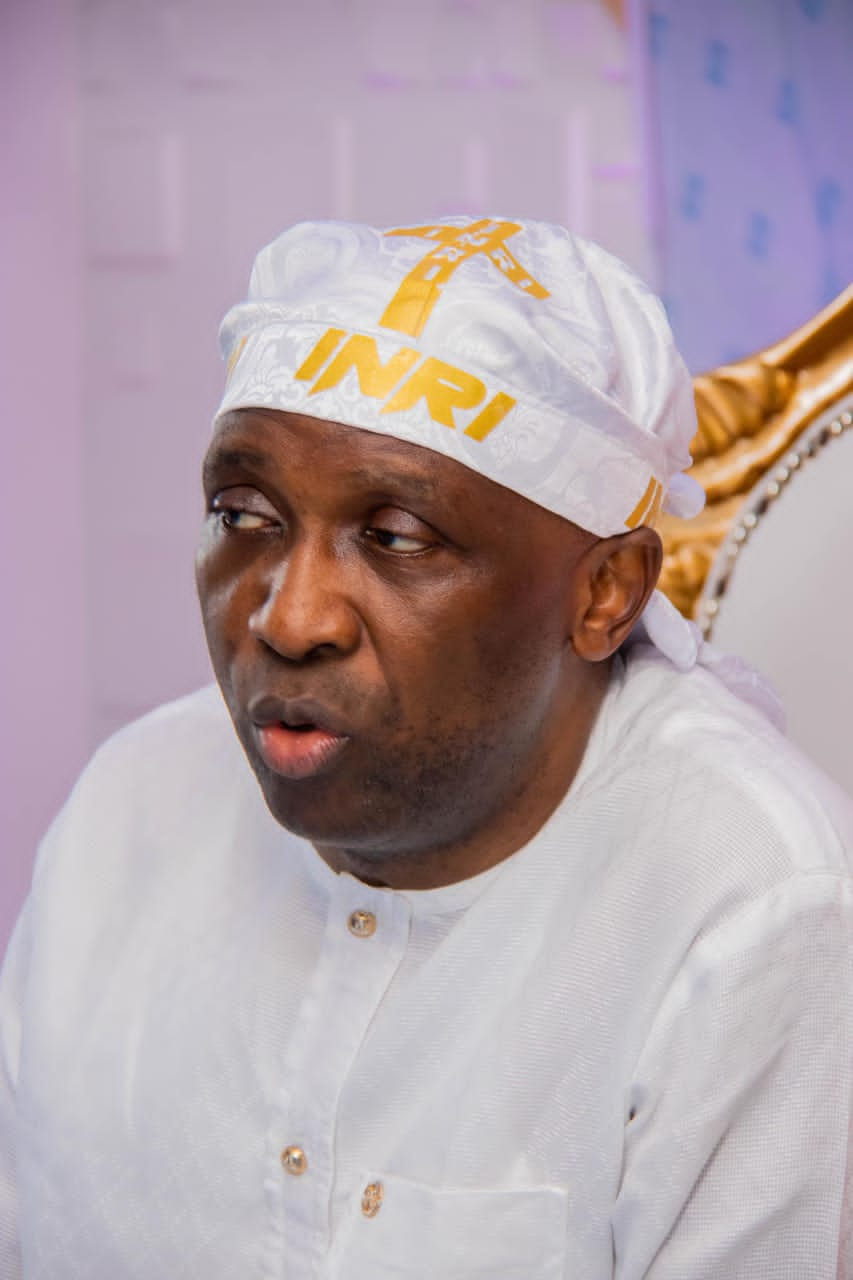
*Spiritual Solutions In Nigeria’s Battle Against Insecurity: The Role of Primate Elijah Ayodele*
By Olomi Jelili, Lagos
When a nation grapples with insecurity, the customary recourse for military forces often involves deploying firearms, grenades, and ammunition to address the threat. However, the crucial query remains: to what extent have these conventional methods effectively mitigated insurgent activities, and have they potentially exacerbated the situation?
For a nation like Nigeria, insecurity became outright in 2013 during the emergence of Boko Haram terrorists but till now, despite efforts by the country’s security agencies to combat them using conventional methods like ammunition, the insurgents have not been effectively subdued. Instead, they have grown in strength and numbers. This indicates that the conventional approach to addressing insecurity has been ineffective.
Based on the preceding information, it is evident that nations grappling with insecurity must adopt unconventional strategies to combat this pervasive threat effectively. Merely relying on traditional methods such as firearms and explosives is insufficient. Instead, a comprehensive approach incorporating alternative and proven measures is essential to address insecurity, particularly in nations like Nigeria.
Throughout history and in biblical accounts, we find stories illustrating unconventional methods of overcoming adversity. For example, the children of Israel brought down the walls of Jericho through joyful praise and music (Joshua 6:1-27), while King Hezekiah achieved victory over his enemies through prayer rather than warfare (2 Kings 19:14-37). These narratives demonstrate that victories against insecurity have been achieved through means beyond conventional military tactics such as wielding swords or firearms, emphasizing the power of faith and alternative approaches.
Given the demonstrated ineffectiveness of conventional methods in addressing insecurity, it is imperative for Nigerian security agencies to consider spiritual avenues for resolving the nation’s security challenges. The remarkable aspect of this approach is that spiritual solutions are readily accessible through Nigerian spiritual leaders, eliminating the need for extensive search efforts.
When discussing spiritual leaders or prophets, it’s noteworthy to mention Primate Elijah Ayodele, the esteemed leader of the INRI Evangelical Spiritual Church in Lagos, who stands out as the singular figure foreseeing insecurity challenges and offering solutions.
The esteemed prophet has demonstrated his spiritual insight by providing unbidden aid to the nation’s security forces, disclosing the locations of insurgent activities in advance, thereby enabling proactive measures. Regrettably, on numerous occasions, these warnings have been disregarded or overlooked, despite their consistent accuracy.
For instance, the abduction of the Chibok Girls in 2014 which occurred in Borno state was forewarned by the renowned prophet. He warned of the activities of terrorists and advised the government to secure Nigerian academic institutions but due to their negligence, the incident occurred and till now, the students have not all been released.
Recently in his prophecies for 2024, Primate Ayodele mentioned some states in the country where insecurity would persist in the year including the federal capital territory, Abuja. He revealed that kidnapping would take a different dimension in 2024 and truthfully, Nigeria has never experienced a kidnap attack in recent times as it has been happening since the beginning of 2024 especially in Abuja, the seat of power.
The recent abductions in Nigerian schools have also fulfilled the prophecies of Primate Ayodele which he warned about in 2023.
On the 1st of October, 2023, Primate Ayodele in his usual way of releasing prophetic messages warned the federal and state government to secure Nigerian secondary schools as he foresaw an attack in the education sector.
It would be recalled that Primate Ayodele was the only man of God that assured that the abducted students in Kaduna would be rescued alive. In fulfillment of this, the Kaduna state government announced the successful rescue of the students in the early hours of today.
Primate Ayodele’s prophetic gifts have extended far beyond Nigeria’s borders, reaching the global stage. A notable example is the recent gang takeover in Haiti, which fulfilled a prophecy he shared in October 2023. At that time, he cautioned of an imminent total shutdown and violence orchestrated by gangs within the country.
Similarly, the recent political upheaval in Senegal aligns with the prophetic insights of Primate Elijah Ayodele. In advance, he cautioned President Macky Sall that his involvement in the country’s upcoming political transition would precipitate a crisis. Despite being advised against extending his tenure, the president’s decision led to the foretold crisis.
Few days ago, Moscow came under heavy terrorist attack, leading to the death of more than 130 people just three days after Primate Ayodele warned President Putin against such an occurrence. Earlier in the year, the man of God warned Russia to be careful of an attack that will lead to the death of several individuals.
There are many more instances that have proven that Primate Ayodele’s prophetic prowess can be an alternative solution to tackling insecurity in countries especially in Nigeria where he hails from.
It’s sad that when Primate Ayodele releases these prophecies about insecurities, some refer to him as prophet of doom when in the real sense, what he is simply doing is ‘spiritual intelligence’ where physical intelligence fails.
Thankfully, the Chief of Naval staff, Admiral Emmanuel Ogalla in his statement a few days ago acknowledged the importance of divine intervention when he called on Nigerians to pray to God for insecurity to end in the country.
It is not known whether our service chiefs including the Chief of Army staff, Chief of Naval staff, Inspector General of Police, and Chief of Defense Staff follow the prophecies of Primate Ayodele but if they don’t; it is high time they knew that his warnings should be used as guidance in carrying out their respective duties.
The enduring presence of insecurity in Nigeria indicates that current approaches have either been ineffective or insufficient. Despite Primate Ayodele offering numerous pieces of advice to the present service chiefs, it seems evident that they have not heeded his counsel.
While some of these advisories may seem unconventional or enigmatic, akin to the victories of Hezekiah, who triumphed in war without wielding swords, or the children of Israel who brought down Jericho’s walls through song, it is now opportune for our security forces to embrace the extraordinary, mystical, and spiritual in combating insecurity in Nigeria.
society
HIGH CHIEF CHETACHI NWOGA-ECTON HONOURED BY IMO STATE HAUSA, IGBO AND YORUBA COMMUNITIES, EMPOWERS THE UNDERPRIVILEGED WITH CASH GIFTS AND TOOLS

*HIGH CHIEF CHETACHI NWOGA-ECTON HONOURED BY IMO STATE HAUSA, IGBO AND YORUBA COMMUNITIES, EMPOWERS THE UNDERPRIVILEGED WITH CASH GIFTS AND TOOLS
An atmosphere of joy and celebration filled Owerri Municipal as High Chief Chetachi NWOGA-ECTON — Adaure, Ada Imo and Uwar Marayu of the Northern Community in Imo State — led her team from Abuja to Owerri for a humanitarian outreach empowerment programme tagged Mission of Mercy.
The outreach, organized under the auspices of the When In Need Foundation and the All Life Matters Humanitarian Foundation, saw the distribution of cash gifts and skill acquisition equipment worth millions of naira to underprivileged and vulnerable members of the Igbo, Hausa and Yoruba communities in Owerri Municipal.
The event was hosted by HRH Alhaji Baba Suleiman, Sarkin Hausawa of the Northern Community in Imo State. He was joined by the Chairman of the Imo State Council of Traditional Rulers and Chairman of the South East Council of Traditional Rulers, HRM Eze Dr. E. C. Okeke, CFR, who was represented by HRH Eze Engr. Fredrick Nwachukwu, Deputy Chairman of the Owerri Zone Council of Traditional Rulers. Also present was the host traditional ruler, HRH Eze Austine Possible Uche of Owerri Municipal.
Other royal fathers in attendance included HRH Eze Dr. Clinton Uboegbulam of Umuororonjo, HRH Eze Peter Njemanze of Amawom, HRH Eze Kelvin Tochukwu Ihebom of Umuihugba-Umuodu Communities, and HRH Alhaji Oba Musibau Aladeji, the Oba of the Yoruba Community in Imo State. The Chief Imam of Owerri Central Mosque, Alhaji Barr. Suleiman Njoku, was also present.
Dignitaries at the occasion included Alhaji Ibrahim Saley, former Secretary of the Imo State Muslim Pilgrimage Board; Alhaji Hassan Babidi, former Special Adviser on Northern Affairs under Governor Emeka Ihedioha; Alhaji Ibrahim Suleiman Ibrahim, Special Adviser to Governor Hope Uzodimma on Northern Affairs; and Hajiya Fatima Hamza, Special Adviser on Northern Women Affairs, Gender and the Vulnerable, among others.
A special appearance was made by Yahaya Moh’d Kyabo Fagge, FCIML (USA), Dan Darman Jiwa Wakilin Sarkin of Jiwa Ward in the Federal Capital Territory, Abuja. He offered prayers and words of encouragement to High Chief Chetachi NWOGA-ECTON, praising her extensive humanitarian services which, he noted, have impacted many communities across Northern Nigeria and beyond. He further described her as an adopted daughter of his emirate, acknowledging her significant contributions to the Jiwa community.
Speaking through his representative, HRM Eze Dr. E. C. Okeke, CFR commended the philanthropist’s numerous good works, noting that they justified the traditional recognition conferred upon her by the Imo State Council of Traditional Rulers.
In his goodwill message, Alhaji Ibrahim Saley cited verses from the Qur’an, highlighting examples of individuals who used their wealth to uplift the poor and were rewarded by Allah. He encouraged her to remain steadfast in her humanitarian service.
While distributing the items and cash gifts, High Chief Chetachi NWOGA-ECTON expressed deep appreciation to the Hausa, Igbo and Yoruba communities for honouring her with the traditional title “Uwar Marayu,” meaning “Mother of Orphans.”
She thanked HRM Eze Dr. E. C. Okeke, CFR, whom she described as a father figure, as well as other traditional rulers who graced the occasion.
She reflected on her humble beginnings, recalling a personal vow she made to God while struggling to survive as a street hawker — that if blessed with wealth, she would dedicate her resources to serving humanity. She expressed gratitude to God that the vision has become a reality through programmes such as the Mission of Mercy.
In his closing remarks, the host, HRH Alhaji Baba Suleiman, appreciated High Chief Chetachi NWOGA-ECTON for her generosity towards the less privileged in his community. He recounted how, after consultations with his cabinet, the council resolved to honour her with the title “Uwar Marayu” in recognition of her selfless service.
According to him, in appreciation of the honour bestowed upon her, the philanthropist provided financial support running into millions of naira, which was used to procure skill acquisition equipment and grants for traders and vulnerable individuals.
Items distributed included sewing machines, barbing kits, salon tools, and wheelbarrows. Beneficiaries also received food items such as 50 kg bags of rice and garri, cartons of noodles, loaves of bread, and other essential supplies.
The Mission of Mercy outreach not only strengthened unity among the Hausa, Igbo and Yoruba communities in Imo State but also reaffirmed High Chief Chetachi NWOGA-ECTON’s commitment to humanitarian service and community development.
society
Only Fools Assume They Can Fight the State Like El-Rufai Did
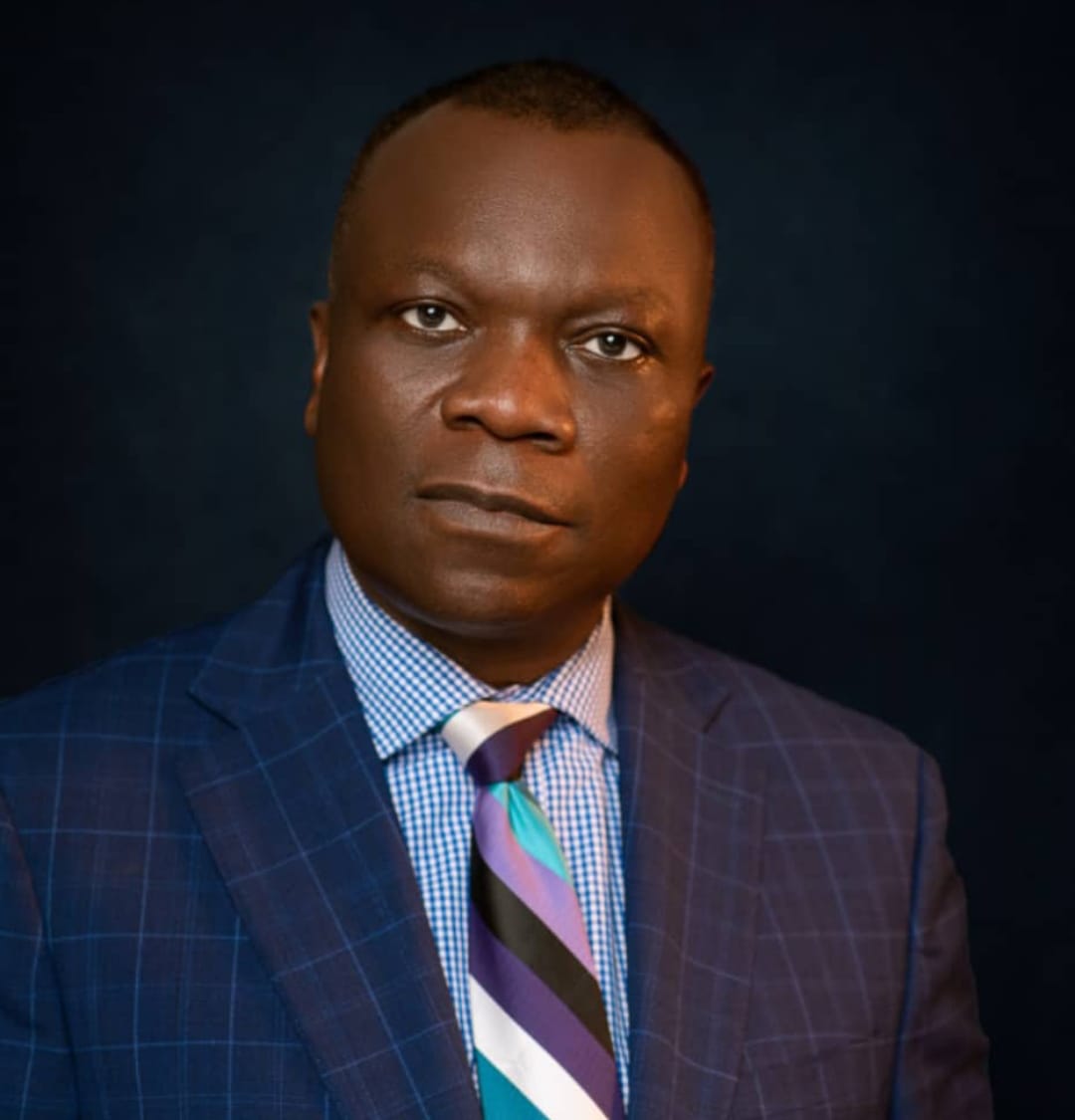
Only Fools Assume They Can Fight the State Like El-Rufai Did — Ope Banwo
Public affairs commentator Ope Banwo has described as “strategic folly” the assumption that a former political office holder can openly confront the Nigerian state without consequences.
Banwo made the remarks while analysing the recent detention of former Kaduna State governor Nasir El-Rufai, which he said underscores the imbalance between individual ambition and institutional power.
“Only fools believe they can challenge the state the way El-Rufai did and continue life as usual,” Banwo stated. “The Nigerian state is not a debating club.”
He noted that El-Rufai repeatedly made grave allegations against government institutions on national platforms, including claims of conspiracies and surveillance, without publicly providing evidence. According to Banwo, such statements, whether true or not, inevitably provoke a response from authorities determined to maintain control.
Banwo explained that when a former official challenges state authority, it is often interpreted not as dissent but as defiance. “The state reacts to defiance, not arguments,” he said.
He further argued that El-Rufai appeared to overestimate his political backing, assuming that his past influence would shield him from institutional action. “That assumption collapsed the moment power called his bluff,” Banwo added.
According to him, the involvement of agencies such as the Economic and Financial Crimes Commission and the Department of State Services illustrates how swiftly the machinery of state can move once a decision is made.
Banwo also highlighted the public’s muted reaction as a crucial lesson. “There were no mass protests. That silence shows the difference between perceived influence and real leverage,” he said.
He stressed that political power in Nigeria is sustained by active control of institutions, not by reputation. “Once you lose the levers, your bravado becomes a liability,” Banwo noted.
He concluded that El-Rufai’s experience should caution other former power brokers against mistaking visibility for authority. “Fighting the state without power is not courage; it is miscalculation,” he said.
society
GENERAL BULAMA BIU APPLAUDS SUCCESSFUL APC CONGRESSES, URGES NEW EXECUTIVES TO FOCUS ON GOOD GOVERNANCE

GENERAL BULAMA BIU APPLAUDS SUCCESSFUL APC CONGRESSES, URGES NEW EXECUTIVES TO FOCUS ON GOOD GOVERNANCE
Major General Abdulmalik Bulama Biu (Rtd), mni, Sarkin Yakin Biu, has extended his heartfelt congratulations to the newly elected Ward and Local Government Executives of the All Progressives Congress (APC) following the successful conduct of the party congresses across Borno State.
In a statement he personally issued to mark this significant milestone, General Biu commended the peaceful and well-organized nature of the congresses, highlighting them as a testament to the unity, maturity, and democratic spirit that characterize the APC. He praised the leadership, stakeholders, and dedicated members of the party for their commitment and discipline, which contributed to the smooth and credible outcome of the elections.
Addressing the newly elected executives, Biu emphasized that their victory is not just an honor, but a mandate for greater service, responsibility, and sacrifice. “Our party faithful look up to you to help shape leadership choices that are credible, experienced, and deeply committed to delivering the dividends of democracy to our people,” he stated, urging them to work sincerely and fairly to strengthen the party at the grassroots level.
He called upon the new leaders to promote unity among members and support good governance to ensure the continued progress of Borno State and the nation as a whole.
In closing, Major General Biu assured the new executives of his unwavering support and extended his best wishes for their tenure, wishing everyone a prosperous and blessed Ramadan.
-

 celebrity radar - gossips6 months ago
celebrity radar - gossips6 months agoWhy Babangida’s Hilltop Home Became Nigeria’s Political “Mecca”
-

 society6 months ago
society6 months agoPower is a Loan, Not a Possession: The Sacred Duty of Planting People
-

 society5 months ago
society5 months agoReligion: Africa’s Oldest Weapon of Enslavement and the Forgotten Truth
-

 news6 months ago
news6 months agoTHE APPOINTMENT OF WASIU AYINDE BY THE FEDERAL GOVERNMENT AS AN AMBASSADOR SOUNDS EMBARRASSING

